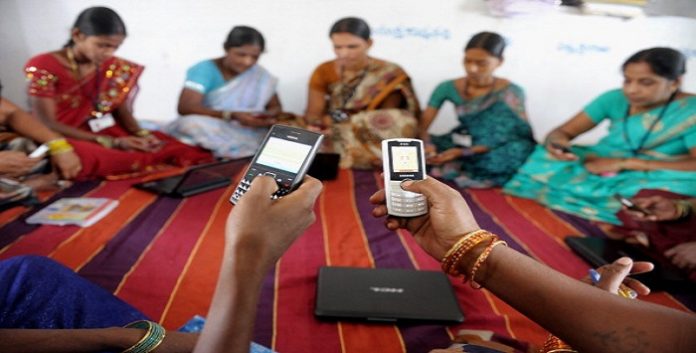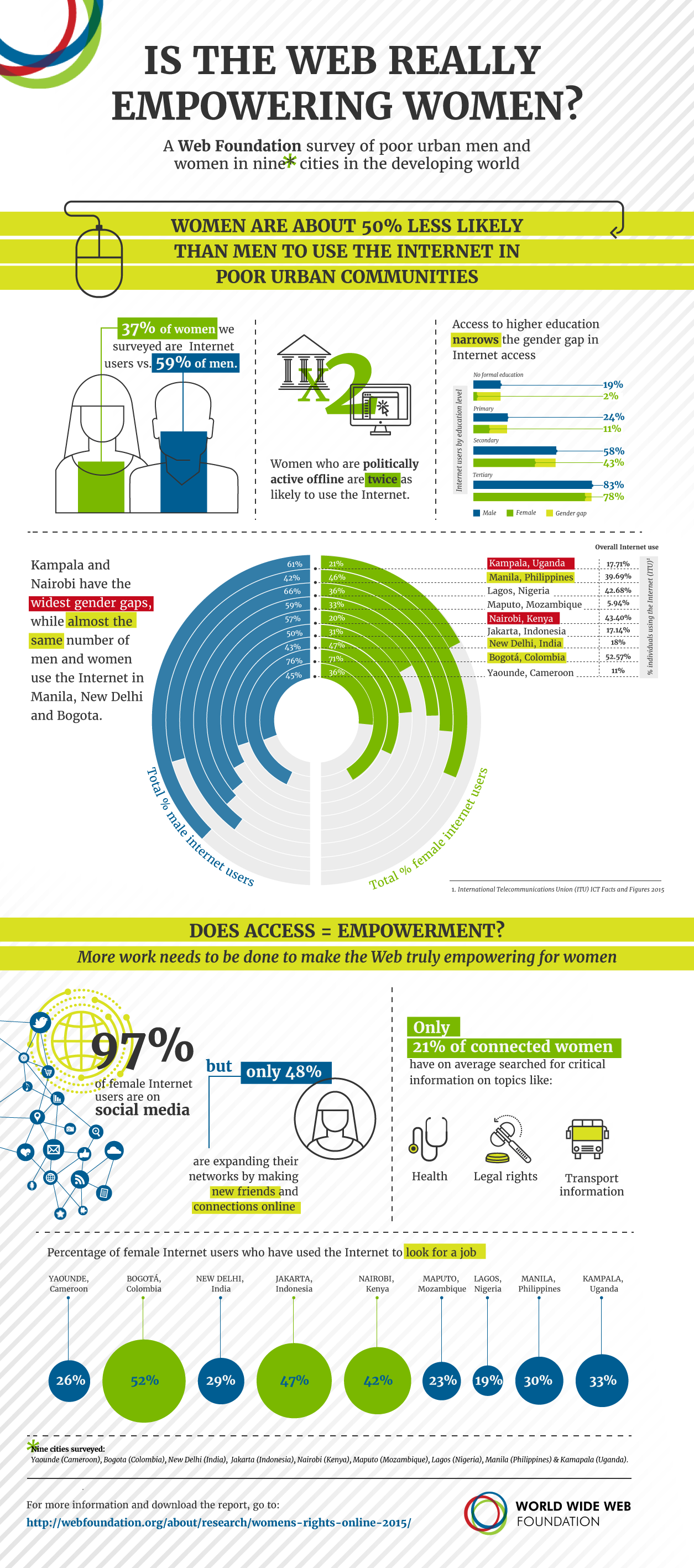
An Intel report in 2013 issued a call to action to double the number of women and girls online in developing countries from 600 million then to 1.2 billion by 2016. It claimed that seeing another 600 million women online would mean that 40% of women and girls in developing countries could potentially contribute an estimated $13 billion to $18 billion to annual GDP across 144 developing countries.
The call to action fell on deaf ears. Women and girls in developing countries are still denied their right to access the transformative power of the Internet.
.@intel is taking strides in ending the internet gender gap through programs: “Women & the Web” and “She Will Connect.”
What can you do?
— GSC Global Sourcing (@GlobalSourcing) April 7, 2016
A survey of about 1,000 men and women across 10 developing countries by the World Wide Web Foundation shows that women are 50% less likely than men to access the Web in poor urban areas, 30-50% less likely to use the Internet to increase their income or participate in public life, 25% less likely to use the Internet for job-seeking and 52% less likely to express political or controversial views online.
Although men and women are equally likely to own a mobile phone, the survey — conducted in Cameroon, Colombia, Egypt, India, Indonesia, Kenya, Mozambique, Nigeria, the Philippines, and Uganda between January and October 2015 — found that overall just 37% of women surveyed used the Internet compared with 59% of men. Anne Jellema, Web Foundation’s CEO, told Thomson Reuters Foundation:
“Most poor urban women are confined to (a technology) ghetto that does little to help them break out of the real ghetto of poverty and gender discrimination. Governments need to make digital skills the right of every girl and boy as part of a wider commitment to quality education for all.”
Researchers discovered that lack of know-how and high cost are the two main barriers keeping women offline. Women are 1.6 times more likely than men to report lack of skills as a barrier to Internet use, while one gigabyte of data — which equals an average of about 13 minutes of non-video Internet usage daily — costs as much as 76% of monthly poverty line incomes in the 10 countries surveyed. They noted:
“Our research reveals a picture of extreme inequalities in digital empowerment − which seem to parallel wider societal disparities in information-seeking, voice and civic engagement. For example, Internet use among young, well-educated men and students in poor communities of the developing world rivals that of Americans, while Internet use among older, uneducated women is practically non-existent.”
The survey also revealed that social media especially Facebook, dominates women’s use of the Web; Ingrid Brudvig, the women’s rights coordinator for the World Wide Web Foundation, said most only used the Internet for social media as a space for gossip.
“Using the Internet only for Facebook is passive use: women are not actively engaging using the Web for empowerment, knowledge, information and rights. This could mean a lack of available relevant content that is user-friendly, low levels of literacy among users and a lack of language diversity represented online.”
While there is no denying the fact that gender inequality has gone virtual, saying that Internet use is not translating into new job opportunities, enhanced income or networks of support based on a survey of just 750 poor women and 250 poor men in each of the 10 countries, we feel, is a bit of an exaggeration.
In India, 36% women engage thru #SocialMedia & #Internet #News; filling the gender gap.Read: https://t.co/iWAY9LUbsr pic.twitter.com/BKRx9Eqaxh
— DEFindia (@DEFindia) May 5, 2016
Have something to say? Please share your thoughts about the findings in the comment section below…
This article (Study Highlights Massive Internet Gender Gap In Developing Countries) is free and open source. You have permission to republish this article under a Creative Commons license with attribution to the author and AnonHQ.com.





